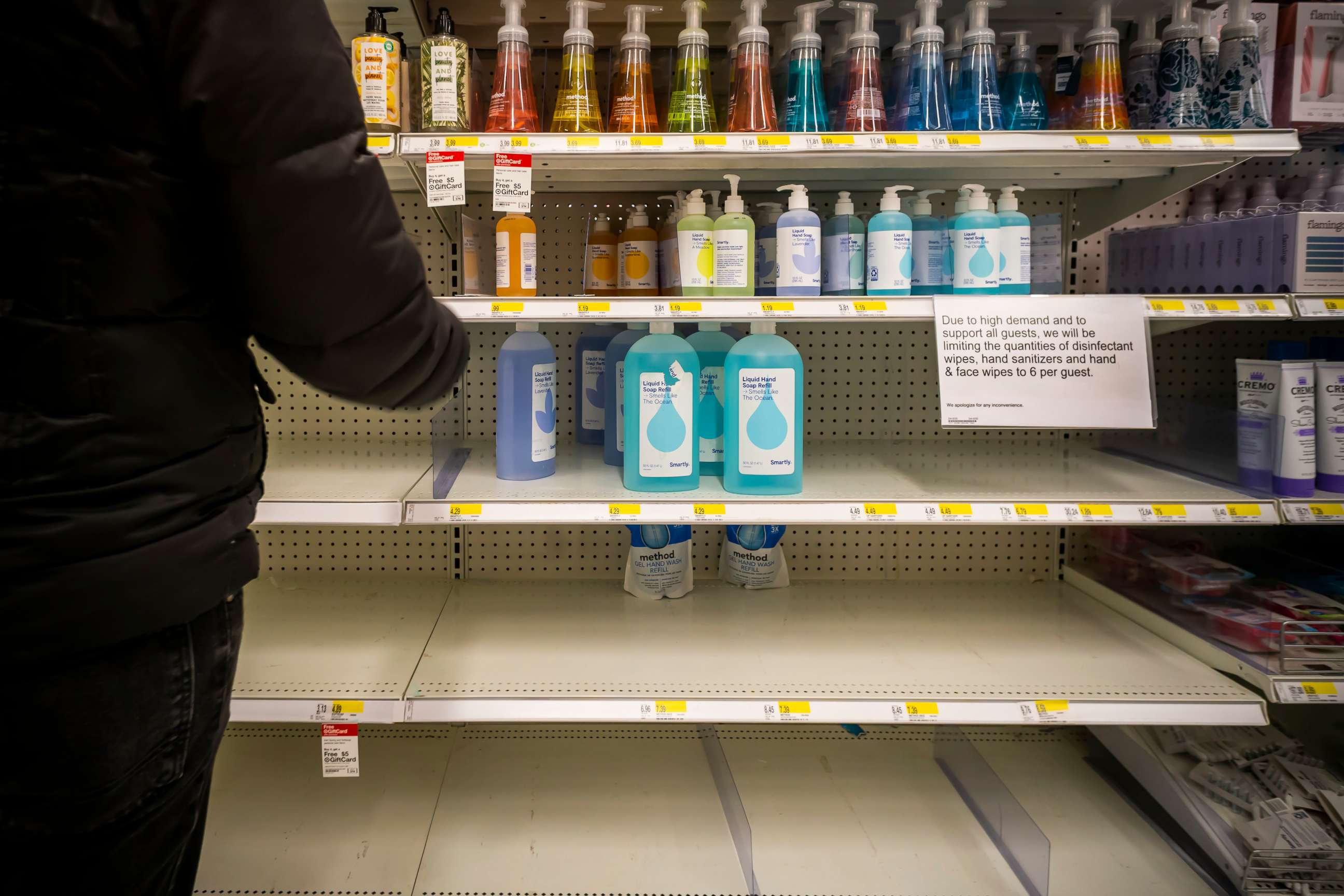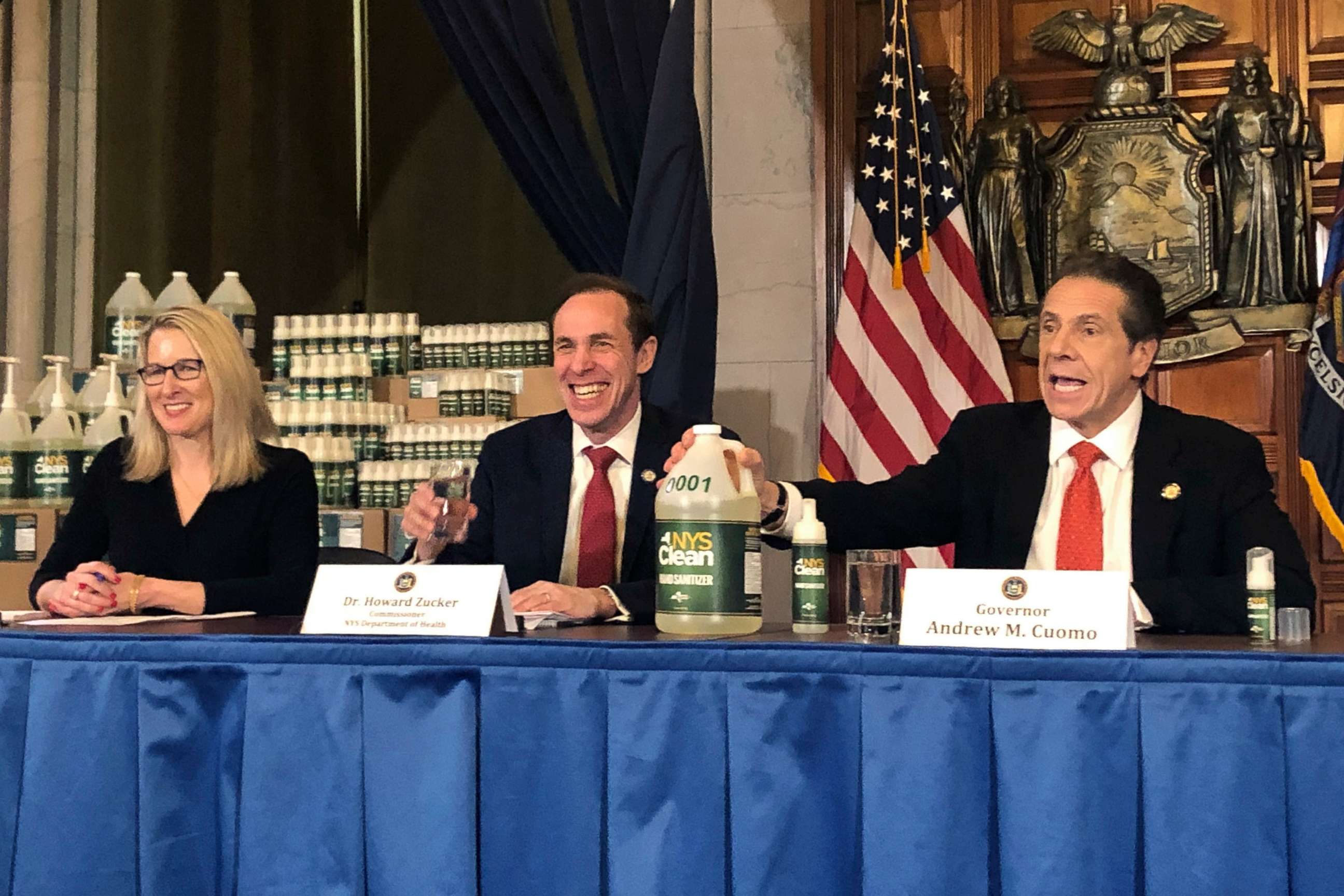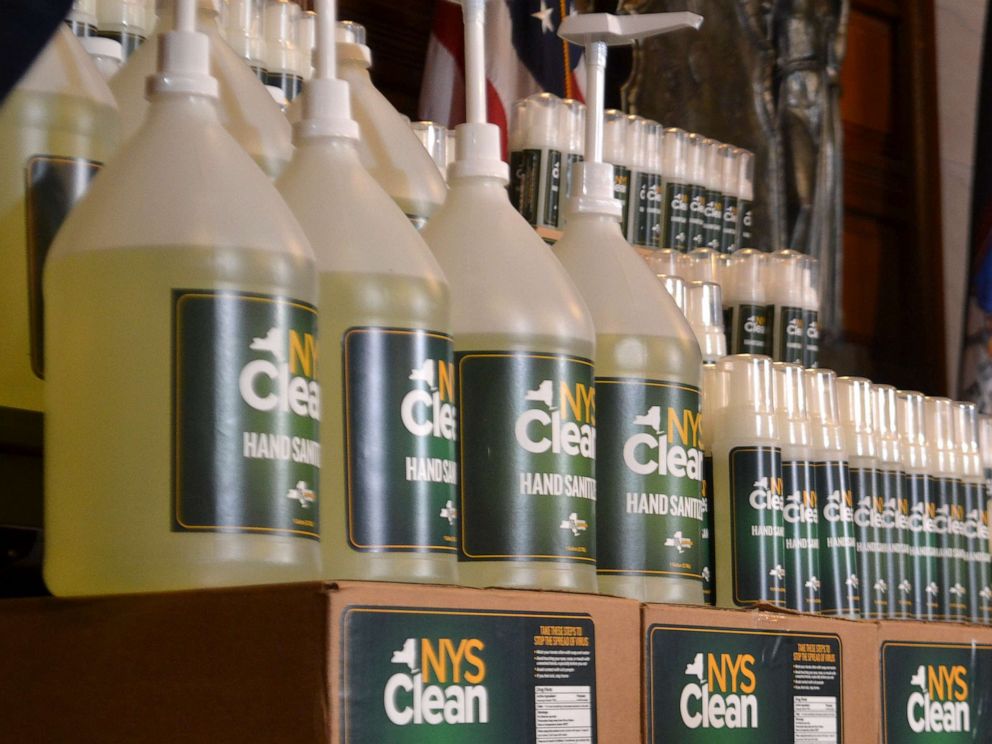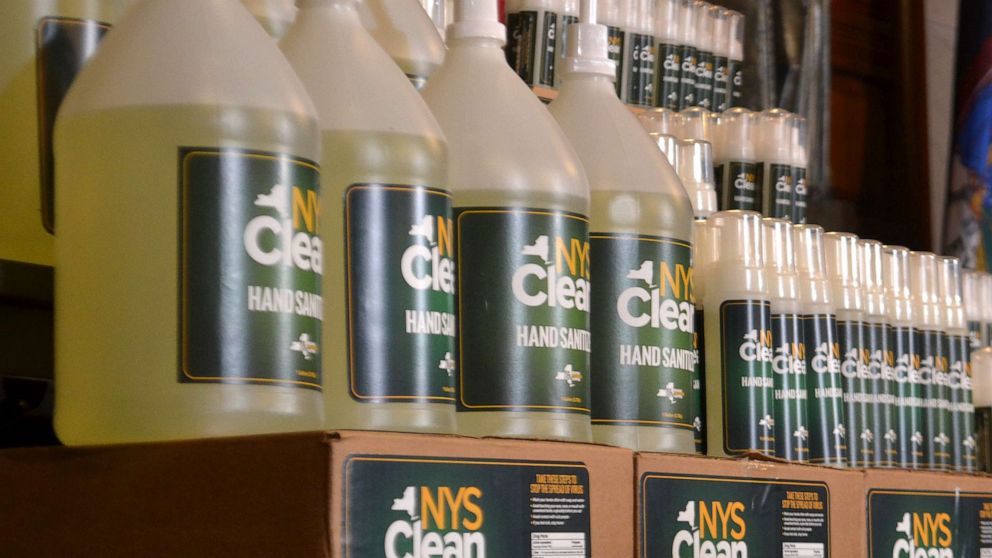Nearly 100 prison inmates in NY to produce 100K gallons of hand sanitizer weekly
As cleaning supplies and anti-bacterial cleansers fly off the shelves amid the increase of COVID-19 cases, New York Governor Andrew Cuomo announced that prison inmates are producing 100,000 gallons of hand sanitizer in response to price-gouging retailers.
"To solve this problem, the state is producing and deploying hand sanitizer to high impact areas as well as schools, the MTA and other government agencies because you can't get it on the market and the product that is available is very expensive," Cuomo said at a press conference on Monday.
"The biggest problem we have in this situation is fear, not the virus itself, and I'm once again reminding everyone to focus on the facts because the facts do not warrant the level of anxiety we are seeing," said Cuomo.
To combat this issue, Cuomo, along with Corcraft, the state's Department of Corrections "brand name" for prison-produced products, teamed up to create a hand sanitizer called "NYS Clean" that will be available to residents for free and distributed to impacted communities as well as state agencies like schools and the MTA.

As of Tuesday, New York has 148 patients with confirmed cases of novel coronavirus. Globally there has been over 4,000 deaths from the virus.
The governor said in a press release that some "retailers are charging approximately 10 times what major retailers charge for hand sanitizer."
"Between increased demand and the price gouging currently taking place in the market, there is a very real need for hand sanitizer for New York residents. DOCCS is proud to meet the governor's call to action and do our part in stemming the spread of COVID-19 across the state," according to the state's acting commissioner, Anthony J. Annucci.

The governor said 100,000 gallons of the alcohol-based hand sanitizer will be produced every week.
"The hand sanitizer is being mixed by a vendor specifically for NYS and is being bottled and labeled at Great Meadow Correctional Facility contains Isopropyl alcohol, Hydrogen peroxide, glycerin USP, softened water and citrus fresh fragrance," a spokesman with the Department of Corrections (DOC) told ABC News on Tuesday.
Prison advocates are calling out the governor and the state's correctional department for subjecting the prisoners to work that equates to "slave labor."
"Incarcerated people in New York have always been forced to produce essential products for state agencies. These individuals work for less than a dollar a day under threat of punishment -- including solitary confinement -- if they refuse," said Tina Luongo and Adriene Holder of The Legal Aid Society.
"This is nothing less than slave labor and it must end," they said.
"A central part of prison rehabilitation is job training and skill development, and this is part of that existing program that’s existed for years,” according to Rich Azzopardi, a senior adviser to the governor, in response to the "slave labor" accusations.
The Department of Corrections confirmed to ABC News that 98 inmates on the project are starting with wages of $.16 per hour which could rise to $.65.
"There is also the potential for some inmates to earn up to 100% bonus for hours worked or $1.30 based on productivity," a spokesman said.
The mission of Corcraft, which is an entity within the state's Department of Corrections and Community Supervision, is to "prepare offenders for release through skill development, work ethic, respect and responsibility," according to the Corcraft Products website.

At the Great Meadow prison in New York, inmates there generally make supplies like "janitorial, personal care and vehicle maintenance chemicals," according to the Corcraft website.
The various products made at the 12 other state prisons -- like eyeglasses -- can only get sold to "government agencies at the state and local levels, schools and universities, courts, fire departments, police departments and certain not-for-profits."
"It would be even more shocking if prisons and jails were to deem this Corcraft product ‘contraband’ and deprive incarcerated New Yorkers from possessing effective hand sanitizer because of the alcohol content," The Legal Aid Society said. "The same individuals who produce this product should not be prohibited from using it."
The number of screening protocols for COVID-19 from visitors coming into prisons across the state increased on Monday, a spokesman said.
"Upon arrival to the facility, visitors will be asked a series of questions regarding any illness or symptoms they may be currently experiencing; travel outside of the United States within the past four weeks, including that of family members; and any direct exposure to an individual diagnosed with the novel coronavirus in the past four weeks," according to a press release issued by the DOC.




